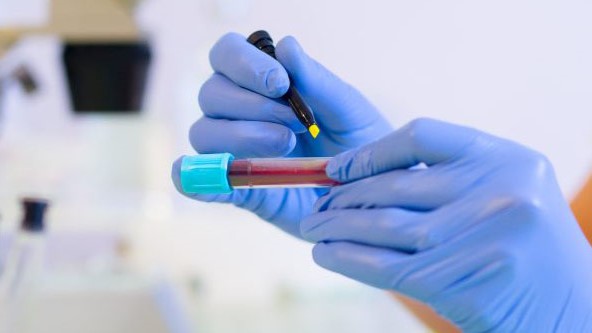Key points
- Nearly all people in the United States have measurable amounts of PFAS in their blood.
- Blood tests for PFAS are most useful when they are part of a scientific investigation or health study.
- A blood test for PFAS will not identify a current or future health problem or provide information on treatment.

Blood tests for PFAS
PFAS have been found in the environment and in the blood of humans and animals worldwide. Nearly all people in the U.S. have PFAS in their blood.
Blood tests for PFAS are most useful when they are part of a scientific investigation or a health study. A scientific investigation can show:
- The range of blood PFAS levels in community members.
- How the levels vary among different populations.
For community members not tested, the data from these studies can also help them estimate their blood PFAS level.
Individual testing
While PFAS blood levels do not predict future health outcomes, under certain circumstances, they might provide benefits to certain individuals. Test results will tell you how much of certain PFAS are in your blood, but they will not:
- Provide clear information about possible health effects.
- Pinpoint a health problem.
- Provide information for treatment.
- Predict or rule out future health problems due to exposure.
If you have questions about blood testing for PFAS, talk with your healthcare provider about the limitations, risks, and benefits of testing. ATSDR has created resources for healthcare providers. Regional Pediatric Enviornmental Health Specialty Units (PEHSUs) also offer consultative services to healthcare providers about PFAS and other environmental health topics.

